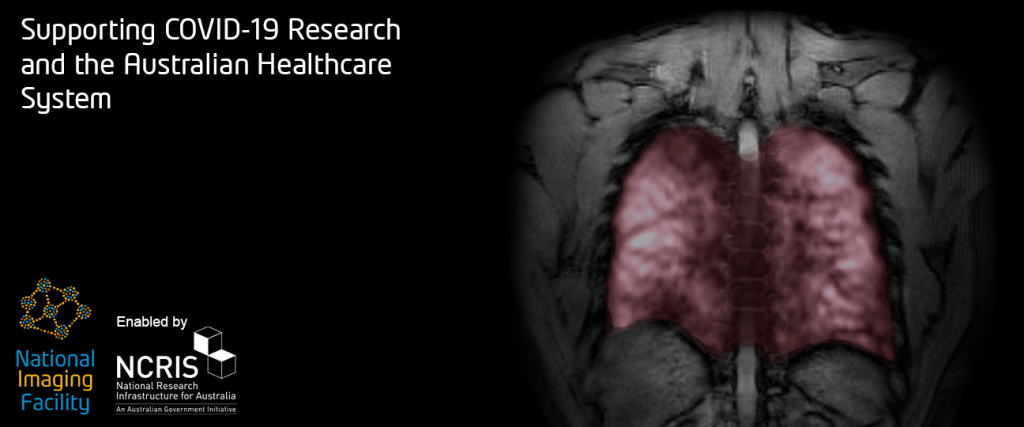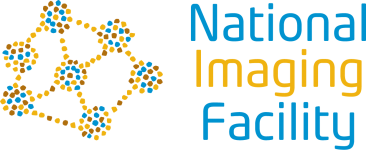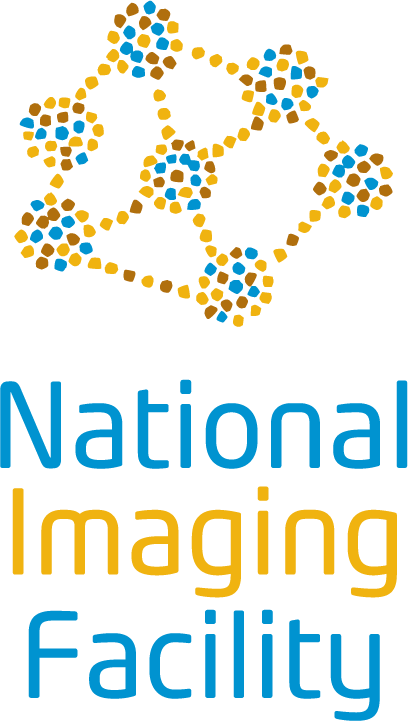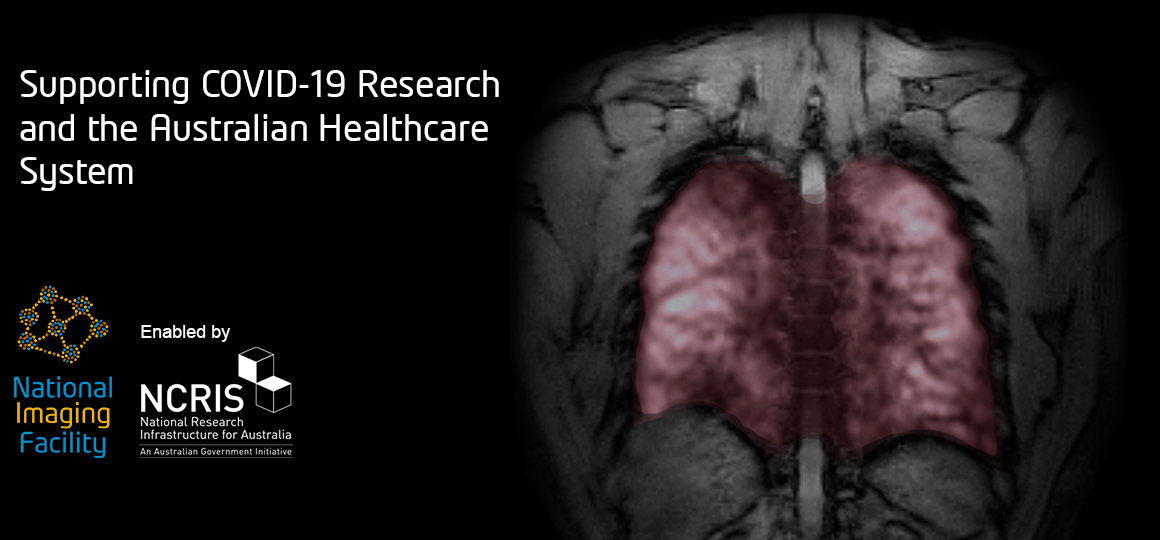Supporting Australia’s Healthcare and Research Ecosystem
The Australian Government’s National Collaborative Research Infrastructure Strategy (NCRIS) exists to enable national-scale research facilities, thereby facilitating Australian researchers to address critical national and global challenges effectively and efficiently. NCRIS projects provide equipment, resources, analysis tools and, importantly, expertise.
These facilities and services are providing essential resources for responding to Australian national crises, such as the COVID-19 pandemic. The NCRIS offerings pack outlines the facilities and services available to respond to Australia’s research needs during this pandemic.
As a biomedical imaging capability, NIF is well-positioned to support Australia’s Healthcare system during the COVID-19 pandemic. NIF sites across the country are involved in a variety of COVID-related activities to support Australia’s healthcare and research ecosystem.

The QLD Node (HIRF site) and The Florey Node at Heidelberg, co-located with hospital campuses, are providing clinical imaging support. This reduces patient risk by removing vulnerable groups from the hospital environment and frees up hospital equipment in case of an influx of respiratory patients.
The University of Melbourne Node is working closely with hospitals using the CT scanner to catalogue parts to be used for 3D printing – for example, parts of ventilators.
Similarly, the LARIF Node in South Australia has scaled up the 4DX technology from small animal work, successfully tested on a large animal. This offers a low-cost, easily manufactured ventilators for use with COVID-19 and ongoing use in less developed countries. An ethics application is in progress to enable production for human use.
In addition to directly working with healthcare providers, the NIF ecosystem is enabling research to support affected populations.
SAHMRI, housing the LARIF NIF node, is engaged in COVID vaccination studies in animal models. Also, the 4DX lung scanning technology is being used to investigate disease models for lung pathology.
At the University of Western Australia Node, researchers are utilising lung MRI to investigate the effect of ethanol inhalation on lipophilic viruses (including SARS-CoV-2). Through developing a deposition map for nebulised ethanol in the lungs, this study highlights a potentially inexpensive and readily available COVID-19 treatment. Find out more about this study by accessing the arXiv pre-print.
A research project is underway at the University of Sydney to bring supportive treatment to COVID patients in ICU. Researchers are testing the feasibility of implanting an Impella LVAD device via ultrasound guidance (2D and 3D intracardiac echocardiography). This work provides clinicians with more treatment options for high-risk patients without the need to transport through the hospital. The University of Sydney is also leading a project to build ventilators (named ‘CoVida’) that are quick and economical to produce in order to provide back-up ventilators if required in the response to the COVID-19 pandemic. The Sydney Imaging Hybrid Theatre is currently being used as the test site for these ventilators to ensure they are robust and fit for purpose.
Finally, NIF radiochemistry capabilities are ready to provide clinical tracer supply as impacted by reduced import capability. The National Research Cyclotron Facility is available to supply clinical FDG to hospital sites to supplement disrupted supply chains.
Do you have a research project requiring the use of imaging facilities? COVID-related or otherwise, NIF is ready to facilitate your project with our network of instrumentation and expertise. Find out more by contacting us as admin@anif.org.au




